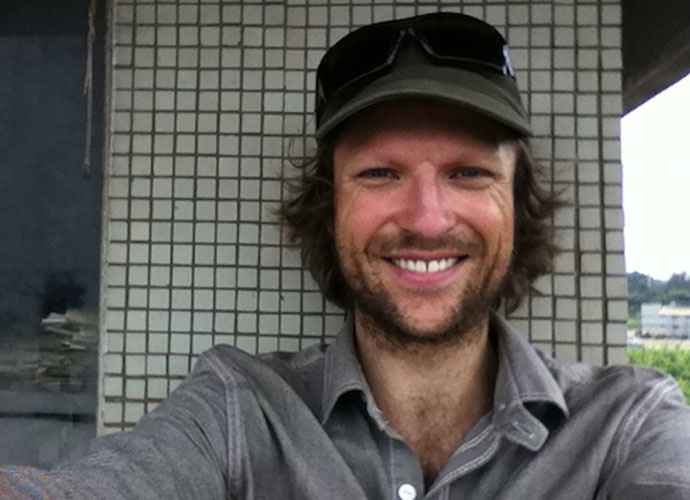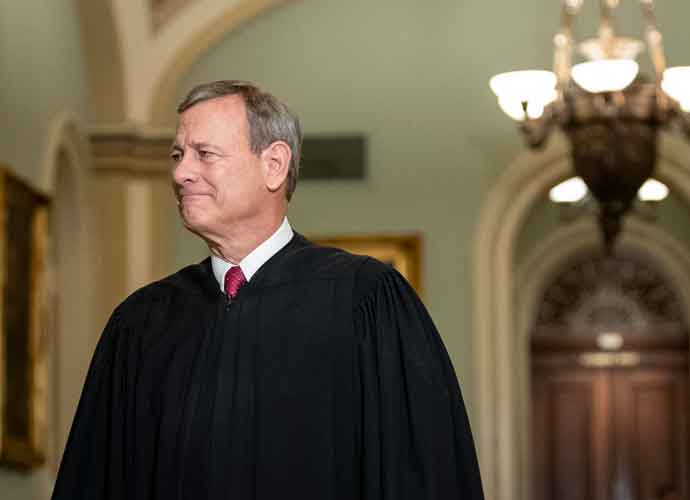Orlando von Einsiedel On ‘Virunga,’ Leonardo DiCaprio, Prince Emmanuel de Merode
Documentary filmmaker Orlando von Einsiedel is the man behind the camera of Virunga, telling the story of the titular Congolese national park and its rangers’ fight to protect it from illegal oil exploitation.
Orlando von Einsiedel On ‘Virunga’
As Einsiedel describes it, Virunga is a natural wonder, home to both volcanoes and glaciers, as well as magnificent mountain gorillas. At the time Einsiedel was learning about the park, Virunga had initiatives to build tourism, promote hydropower and to create jobs. It provided a sliver of optimism in a country that was in the midst of weathering a 20-year civil war. Soon enough, Einsiedel learned that Virunga was fighting a war of its own.
“Emmanuel and the rangers, it’s really a David and Goliath battle. Here you have a group of very dedicated rangers, risking their lives up against very, very powerful forces in a rebel army and a billion dollar oil company, one of Britain’s biggest companies,” Einsidel told uInterview exclusively, speaking of Secor International. “So the rangers are very outgunned, but yet they are some of the bravest people I’ve ever met. I think there is real hope and optimism that ultimately they’ll triumph.”
While working on Virunga, Einsiedel was forced to put himself in exceptionally dangerous situations alongside the rangers he admired, suppressing his very rational fears about his own safety. The risks for the filmmaker proved to be worth it, as he and his team collected ample material for the documentary.
“There were a lot of different people out there, filming undercover, documenting evidence about Secor International’s agents and contractors and supporters. There were a lot of moments when we started to review the footage, and we were like, ‘I cannot believe this person is saying this,’” Einsiedel revealed. “Some of the stuff that comes out of these guys mouths — it’s like you couldn’t write it in a movie. It’s so on the nose it would almost be cheesy.”
For Einsiedel, there’s a larger message he wants to get across in Virunga than just the need to protect the national park. He wants those who watch his documentary to understand the threat that illegal business interests can have on things that should, theoretically, be off-limits and out of bounds.
“Protecting Virunga isn’t just about protecting the last of the world’s mountain gorillas or parts of Eastern Congo, which really holds the key to driving forward stability for the entire region,” Einsiedel told uInterview. “Virunga is a UNESCO world heritage site and these are parts of our planet that humanity has decided are so important, that we shouldn’t be exploring for oil or gas or mining for coal in these very important parts of our world. So if Virunga, Africa’s oldest national park, if something as iconic as that falls in the face of illegal business interests, what part of our planet is safe from human greed?”
Virunga has been streaming on Netflix since Nov. 7.
ORLANDO VON EINSIEDEL: I work a lot in Africa as a filmmaker, and it’s a part of the world I really enjoy being in. I love the people. I’ve been interested for a while to try and tell a story about Congo that wasn’t the usual narrative that comes out of the region, which tends to be about conflict, sexual violence and poverty. Those are obviously really important stories to tell but I wanted to try and tell a different story. One day I came across a newspaper article about these rangers in Virunga National Park, this park I never even heard of with volcanoes and glaciers and mountain gorillas. I thought, wow this place sounds incredible. Also this park was pushing forward these really amazing development projects like tourism and hydropower all to create jobs and ultimately stability in a part of the world, where they are 20 years at war. That inspired me, really spoke to me, so I went to start telling that positive story. Sadly, after about three or four weeks on the ground, this new civil war started and at that same time I learned about the parks very serious concerns about illegal oil exploitation by British oil company Secor International.
OVE: So, Emmanuel and the rangers, it's really a David and Goliath battle. Here you have a group of very dedicated rangers, risking their lives up against very, very powerful forces in a rebel army and a billion dollar oil company, one of Britain’s biggest companies. So the rangers are very outgunned, but yet they are some of the bravest people I’ve ever met. I think there is real hope and optimism that ultimately they’ll triumph.
OVE: I’d be lying if I didn’t tell you that I was terrified fairly frequently while making this film. But ultimately you always have to check yourself. The rangers have lived through 20 years of war. They are braver then I will ever be, and you draw courage from that. Whenever I’d get really scared someone would say, c’mon pull yourself together it's not that bad. That inspires you and you’re like, ok what right do I have to be scared when these guys are standing there firm with guns firing all around them.
OVE: We had a lot of moments where the footage that we brought back... I mean there were a lot of different people out there, filming undercover, documenting evidence about Soco International’s agents and contractors and supporters. There were a lot of moments when we started to review the footage, and we were like, I cannot believe this person is saying this. Some of the stuff that comes out of these guys mouths — it's like you couldn’t write it on the movie. It's so on the nose it would almost be cheesy. But they were saying this stuff and we were regularly blown away.
OVE: The film, I suppose, is made up from three different filmmaking techniques. There is kind of journalistic/investigative filmmaking, there is kind of verite, and there is also sort of nature documentary. Pulling it all together was, of all the things we learned from making this film the one part I didn’t think would be a massive struggle would be the edit. Turns out it was a complete nightmare. But we had a fantastic editor in Masahiro Hirakubo, whose cut all of Danny Boyle’s feature films, he cut Trainspotting and A Life Less Ordinary. Working with him was a real honor and he brought a really amazing, dramatic touch to the film.
OVE: Well, maybe the first thing I should say is what’s happening in Virunga National Park with regards to illegal oil exploitation is something everyone should deeply care about. Protecting Virunga isn’t just about protecting the last of the world’s mountain gorillas or parts of Eastern Congo, which really holds the key to driving forward stability for the entire region. Virunga is a UNESCO world heritage site and these are parts of our planet that humanity has decided are so important, that we shouldn’t be exploring for oil or gas or mining for coal in these very important parts of our world. So if Virunga, Africa’s oldest national park, if something as iconic as that falls in the face of illegal business interests, what part of our planet is safe from human greed? That’s why everyone should be very concerned about what is happening. What we are asking people to do, it's very simple, we really want to spread the story of what’s happening on the ground in Virunga National Park to as wide an audience as possible. The film goes on general release on the seventh of November on Netflix. It goes out to 50 million homes in 50 countries. We’d love everyone to watch it and if you like it spread it around. Put it on social media, tell all your friends to watch it. We really need the world to get behind this park and for everyone to say, not in our name are we going to let Virunga fall.
OVE: Early on in the making of this film, we realized that what we were documenting played out into a much bigger background in history. There has been a cycle of violence in Congo that goes back 130 years. This cycle is based on the idea of outside sources coming into Congo, taking away it's resources and the end result being incredibly bad for the Congolese people. There’s a famous saying in Congo that it’s the world richest country with the worlds poorest people. What is happening in Virunga National is that process happening on a micro level.
RELATED ARTICLES
Get the most-revealing celebrity conversations with the uInterview podcast!








Leave a comment